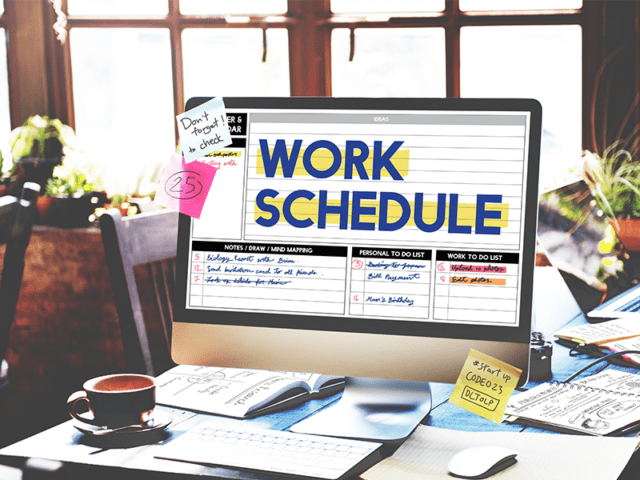All work and no play makes Jill a dull girl. And that means, mentally dull because you’re so fatigued, overworked, under stress, and always chasing the next deadline. So, while you work hard for your dream job and big projects, never forget to prioritise your mental health too. Otherwise, no number of late nights, promotions, and corner offices will help you sleep well at night.
Did You Know?
As reported in a survey, 87 per cent of the workforce is stressed about their work.
How Does Work Affect Your Mental Health?

For most people, having a watertight dichotomy between their personal and the professional isn’t feasible, but the lack of a proper work-life balance negatively impacts your relationships as well as your productivity, both at home and at work. Being stressed and overextending yourself over a prolonged period of time has been proven to lower your immunity, rendering you susceptible to different kinds of diseases.
Did You Know?
A 2010 UCL study has shown that people who worked three or more hours longer than a normal, seven-hour day had a 60% higher risk of heart-related problems.
While your career provides you with fulfilment and validation, an unhealthy work environment can turn toxic and exhausting very quickly, leading to both physical and mental repercussions. In the sequestered cubicles of corporate offices, most symptoms of depression and anxiety go unnoticed by others, such as feelings of melancholy, apathy, guilt or hopelessness, social isolation and absenteeism.
In the event that these symptoms are noticed by someone, they are usually just chalked up to routine work pressure, instead of enquiring why the person is feeling that way. In a positive working environment, employees are able to engage with their tasks and build synergetic dynamics with their colleagues.
Interesting Fact
The WHO has observed that “ Workplaces that promote mental health and support people with mental disorders are more likely to reduce absenteeism, increase productivity and benefit from associated economic gains.”
Policies Organisations Can Adopt To Help
One of the most significant ways that organisations can help to cultivate a positive, employee-friendly culture is by ensuring that their employees derive satisfaction and meaning in the work that they do. Abstaining from micromanaging their tasks, while also providing them with the training and resources that they require, is essential. Programmes need to be structured around mental wellness and reducing the stigma that currently surrounds depression and anxiety. Talking about stress and fatigue should be normalised and employees should be encouraged to take time off and go home at a respectable hour to unwind, reset, and refresh.
8 Ways To Take Care Of Your Mental Health At Work
Here are a few ways you can take control of your own mental health while you’re at work, and support those around you too.
1. Clear Work Schedule

Establish a clear work schedule and reduce the amount of time that you and your team spend working at home outside regular office hours. In this age of technology and social media, we are all more connected and accessible than ever before. When this is added to the existing pressure to outperform one’s peers, it leads to burnouts and increases anxiety.
2. Set Realistic Workloads

An equitable and manageable workload spread across employees and teams with realistic deadlines should be established. If there’s too much to do in a very short time, you must speak up and encourage others to voice their concerns to the management.
3. Work As A Team

Preventing employees from working in complete isolation helps create a healthy interpersonal dynamic between peers. Group projects and team assignments are a great way to build camaraderie and connections at the workplace. This way, you can keep checking in with each other if someone appears reclusive, upset, emotional, depressed, or overworked and overstressed.
4. Get Professional Help

Never shy away from seeking professional help from a therapist or counsellor if you’re feeling too overwhelmed. Therapy is just as effective for work problems as it is for personal issues, and most people forget that. You can even suggest having an on-site or visiting counsellor in the office to the HR. You can include yoga for concentration in your daily routine which help you manage time better at work and prevent you from feeling worked up beyond a point.
5. Emphasise Physical Fitness

Knowing that a healthy mind lives in a healthy body, it is important to focus on your nutrition and fitness by eating well and exercising regularly. The organisation too, can conduct Zumba and aerobics classes for their employees on Fridays.
6. Create A Positive Workplace

Fostering positive interpersonal relationships with colleagues and superiors is crucial to one’s well-being. Conflicts and inappropriate behaviour must be properly managed where you work out your issues with a person through conversation one-on-one, instead of harbouring feelings of resentment. A well-functioning Human Resources team should be able to assist with this. Also, creating a positive workstation can help you stay focussed and at peace. Here are some simple office desk decor ideas that you can consider.
7. Give Due Credit

Positive reinforcement by drawing attention to past accomplishments and accentuating the value of the employees to the team at large are immensely valuable methods of boosting morale and raising self-esteem. On a personal level, always take time to acknowledge and express praise to a colleague or team on a job well done.
8. Lend An Ear

Lastly, simply listening to each other, engaging with feedback and providing concrete solutions is a very valuable practise in the workplace. Employees can offer their own strategies and solutions to deal with mental health at the workplace. This way they become more committed to participating in the solution.
Covid-19 has drastically changed the work culture all around the world and with work from home being the new normal, it becomes necessary for you to take care of your mental health. Watch this video to learn about 5 ways to deal with burnout at work.
We grew up being told to do what we love and to love what we do. We were told that if we found a job we loved, we’d never have to work a day in our lives. But the truth is that no matter how much we love our careers, every job comes with its own share of work-related issues and stresses that can, and do, impact us deeply. But no one needs to suffer in silence. The concerns of every single person at a workplace need to be verbalised and addressed for the personal growth of the employees and the productivity of the organisation at large.

